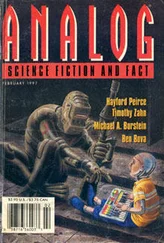‘Mustn’t keep you.’
But a week or so later, we came across each other in the park, and he invited me to join him in the café.
‘By the way, I’m harmless,’ he reassured me, laughing. ‘Too old to be otherwise.’
Yesterday, Annie left me unsettled, so I decided to drop in on George, hoping for a serene half hour with him in his garden. But when he came to the door, he said, ‘I’ve a chap, here, from London, he’s come for some stories from me.’
‘Stories?’
‘Of work. Of working in the police force. Oral history. He’s taping me.’
I stepped back off the doorstep, but he insisted, ‘No, we’re finishing up, he has a train to catch. Two minutes, and then you and I can make some tea and take a tray into the garden.’
Hal and I followed him into his front room. The historian, in an armchair in the corner, was middle-aged and dressed in a dark suit. Looking up into sunshine, his small round lenses became medallions. He rose, tall amid the armchairs, and George began the obligatory chant, ‘Dr Robinson, Sadie Summerfield; Sadie, Dr Robinson.’
The man’s smile looked like a wince. I wished that he had stayed in his armchair, that George had not been provoked to compere this display; I could have slipped into the room. I dreaded looking down to see the fleece of Hal’s blond fur on those black trousers. The man was holding one of his hands towards me. I hate to shake hands, I become all thumbs; I hate the judgements that people make from handshakes. He said his first name, which I missed because he spoke quietly and I was saying hello. His hand had come and gone from mine before I had noticed.
I sat down; he sat down; Hal went towards him and had his head stroked. The hand was unmarked, ivory; the nails, too. Hal returned to me and lay down, panting close to the microphone on the coffee table. George settled into his chair. The interviewer leaned forward and pressed a switch on the tape recorder.
‘As I was saying,’ George told him, ‘this chap was well known to us.’
Watching the historian’s black wool sleeve scrape over a white cuff, I wondered why anyone would wear a suit in such weather and then not even remove the jacket in a stiflingly double-glazed, net-curtained, upholstered room. His face, though, was untouched by heat. Even the pink of lips was missing because he seemed to have none, he had a mere line for his mouth. He was colourless in a room slapped with sunshine, splashed with chintz, dotted with vases. Looking downwards, head inclined in listening pose, he was eerily motionless in the company of animated monologue and convulsive canine panting. He could have been a black-and-white photograph of a person, he was no more than an arrangement of shadows, the smallest and darkest of which resembled the indentation of a fingertip in the inner corner of each eye. By contrast, his temples shone below a receding hairline.
‘He used to go into the countryside and pick this moss which is important to florists, then he’d come into a town when the florist had shut up shop for the day, he’d go next door and ask if he could leave Mrs Bloggs’ order of moss with them, and would they pay him the two quid or whatever? The following day, of course, Mrs Bloggs breaks the news to her neighbour that she’s never heard of this man or his moss.’
A tightening of one corner of the interviewer’s mouth, the screwing down of a smile, then he glanced at me and I saw how all his colour was in his eyes: china blue; very dark, for a blue.
‘And he did the same with blackberries and greengrocers, in season. Hard for us to keep the evidence, in those cases. I suspect that many shopkeepers didn’t complain, but some did. I was never particularly interested in bringing him in, I wasn’t going to go and look for him, I knew that he was around, so when we’d had a lot of complaints, I’d contact the spike –’
‘Spike?’ the interviewer queried.
‘Workhouse. And I’d ask them to let me know when he turned up. And he always turned up, for the winter. He knew that I’d come for him, and then he’d be sent down, which was what he wanted because then he had food and shelter for the winter.’
I shuddered to think of that hopeless trading of workhouse for prison.
‘Mind you, in the end, a judge lost patience and sent him down for three years – three years , quite unnecessary – and I never came across him again.’
Suddenly the session seemed to have finished: the historian was packing away his paraphernalia, going for his train.
Конец ознакомительного фрагмента.
Текст предоставлен ООО «ЛитРес».
Прочитайте эту книгу целиком, купив полную легальную версию на ЛитРес.
Безопасно оплатить книгу можно банковской картой Visa, MasterCard, Maestro, со счета мобильного телефона, с платежного терминала, в салоне МТС или Связной, через PayPal, WebMoney, Яндекс.Деньги, QIWI Кошелек, бонусными картами или другим удобным Вам способом.












